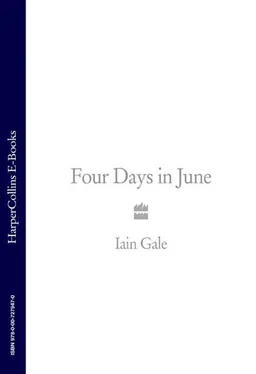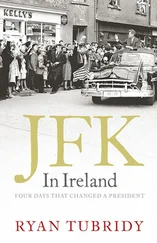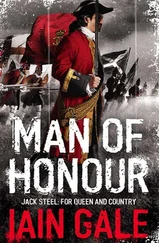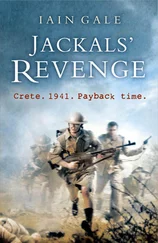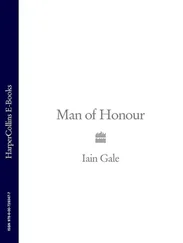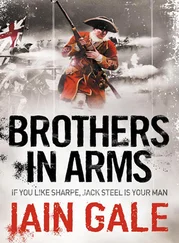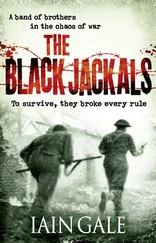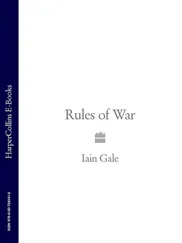What years those had been. What soldiers to command. Ross-shire men mostly, and hardly an English speaker among them. He recalled the training ground at Hythe. The English drill sergeants, powerless to command the ‘Highland savages’ and his own gentle commands in his native Gaelic which had moulded the company into the fighting unit he had taken into battle. They would have followed him anywhere. To Hell itself. Had followed him within two years to Sicily. Into the French lines at Maida in that glorious charge which had brought him the Gold Medal, the army’s highest honour. He had addressed them afterwards, in Gaelic:
‘ Tha mi a’creidsinn, a chairdean, gu bheil subh sgith .’
For the medal was not his, but theirs. And the following year they had gone with Macdonell to India. Discovering with him the mysteries of that beautiful and hellish continent. Returning home with them, he had marched into Edinburgh as their lieutenant-colonel.
There had been tears, a lament for the pipes composed in his honour – ‘Colonel Macdonell’s Farewell to the 78th’ – when, four years ago now, he had transferred from the old regiment into the Guards. It had been inevitable. The brilliance of his military masters never ceased to amaze him. What officer, he often wondered, had put him and his Highlanders – the heroes of Maida, fighting men to the last – on garrison duty in the island of Jersey? Macdonell was a leader, a warrior. Not some clerk. His men had no alternative save to languish in their new role. But, for all his regimental loyalty, Macdonell had been damned if he would suffer the same fate. The exchange of a captaincy in the Coldstream with a callow youth who preferred the comforts of home to the rigours of campaign had cost him the not inconsiderable sum of £3,500. And, thanks to the Guards’ curious system of ‘double-ranking’, his new role still held the equivalent status of lieutenant-colonel in the eyes of the line regiments.
And so he had gone to Spain. Many of the officers and men he saw around him now, chattering, dozing in their weary little groups in this sodden Belgian field, Henry Wyndham, his second-in-command, George Bowles, Miller, the Graham brothers, Josh Dobinson, Motherly, Kite, Fuller, were those whom he had led for two years in the Peninsula. Led through a maelstrom of regimental battle honours – Salamanca, Vitoria, Nivelle, the Nive. They were good men. Not Highlanders, mind. But good, sound fighting men. English, mostly. A few Irish, like the Grahams – though not as many as filled the ranks of the line regiments. They were men like Dan Perkins, the son of a Yorkshire sutler, with a grip like iron and tenacity to match. Men like 27-year-old John Biddle from Worcestershire, his colour sergeant and trusted friend who, with nine years’ service behind him in the battalion, had taught Macdonell the ways of the regiment in the very direct manner that his brother officers never could. There were others, too. New men, brought in from the militia to make up numbers. But, thanks to the attentive ministrations of Battalion Sergeant-Major Baker, they had quickly been assimilated into the regimental family. Macdonell cared for them all with a paternal affection – strict yet compassionate. And they in return were prepared to do anything he ordered. He was their ‘chief’ now. They his ‘clan’. Their loyalty was unto death.
He opened his eyes. Looked at the men again. Thought to himself what a very different sight they presented this morning to the public image of a Horse Guards’ review. Their clothes were largely those with which they had been issued two years back, and their service was beginning to tell. They had not been home since the end of the Spanish war and their famous scarlet coats, once vivid, had faded to a dull brick-red, too often patched and made good. The long-awaited new uniforms had still not arrived, and when they at last met the French it would be like this. Macdonell himself had been fortunate enough to have ordered a new service coat from his tailor in St James’s. It had arrived only last week. Scarlet with blue facings, edged in gold lace and with two heavy gold bullion epaulettes. He had also managed to get a neat new shako direct from Oliphant’s. In effect, he thought, with his grey overalls still missing, forced into white kerseymere breeches and tassled hessian boots, he might look rather too smart. Too tempting a target, perhaps, for a French sharpshooter.
At least he knew that, if they could not parallel his own sartorial pose, his men would do everything else they could to make him proud. Would, if they had half a chance, whitewash their cross-belts to a parade-ground brilliance; polish their brass; hone their leather. More than this, though, they would make him proud of them as soldiers, doing what they were trained to do: kill Frenchmen. He knew that in the heat of battle, when lesser men were panicking, losing their minds if not their lives, his lads would still be standing firm. Two ranks of muskets, spitting smoke, flame and a three-quarter-inch round lead ball. And then, when they had stopped the enemy in his tracks, as they had so many times before, they would follow up with the bayonet. And as for him, thought Macdonell, well, if that Frog sniper hit his mark, then that would be his fate. He was in the business of death and knew that one day it would come looking for him. His duty was to lead from the front. If necessary to fall at the front – as he had seen so many of his brother officers fall, all too often and too closely, in Spain, Sicily and India. Merely duty.
He stood up slowly, straightened his shako and turned to Biddle, who was hovering, alert, close by. ‘What’s our strength, Colour Sar’nt?’
‘This morning, sir, one hundred and ninety-three men, sir, all told. Including that is yourself, sir, and the two colonels, Captain Moore, Captain Evelyn, Captain Elrington and the ensigns, sir – Mister Gooch and Mister Standen.’
In normal circumstances Macdonell’s command – No. 1 Company – consisted only of his own junior officers, Tom Sowerby and John Montagu, ten NCOs and some 100 guardsmen. Ten such companies formed the battalion – Second Battalion, 2nd Coldstream Guards, under Colonel Alexander Woodford. For the last year, however, while the battalion had been stationed here in the Low Countries, Macdonell had been its temporary commanding officer. It was perhaps on account of this responsibility, he supposed, together with his impressive service record, that he now found himself, for the duration of the campaign at least, moved to command of the battalion’s Light Company. And more than this, to the command too of the Light Company of the 3rd Scots Guards, who drew their recruits primarily from his native country. In all, nearly 200 men.
Good to be leading Scots again in what he believed would be the final conflict of these long and bloody wars. Of course they were not, most of them, Highlanders like him. Many originated from Edinburgh and Glasgow. A few were borderers. There were some, though, whom he knew to understand the old tongue. MacGregor, for instance – that big sergeant-major of the 3rd Guards, with the huge grin and hands like spades. Macdonell closed his eyes, and, leaning back against the hedge, attempted to catch a few moments’ rest. Good to lead Scots again. Back where he had started. Full circle.
SIX
Quatre-Bras, 11 a.m. De Lancey
He took a sip of coffee and winced. The brew, which he had accepted gratefully from George Scovell and of whose origins he had thought it best not to enquire, was stronger than that to which he was accustomed and uncommonly bitter. Still, it was fulfilling its purpose. Twice in the last hour he had felt his eyes begin to close. The strain of the previous evening and a profound lack of sleep were starting to tell. It had been 7 a.m. before he had despatched Magdalene, her groom and maid, to Antwerp. He was content at least with her safety, having already made provision for her to be cared for there by Captain Mitchell of the 25th, the Deputy Assistant Quartermaster General to the city. He took another sip of the thick brown liquid and rolled it around in his mouth. He knew of old, from so many mornings in the Peninsula, similarly heavy-lidded under a Spanish sun, that if only he could keep awake until midday he would be able to function till nightfall.
Читать дальше
